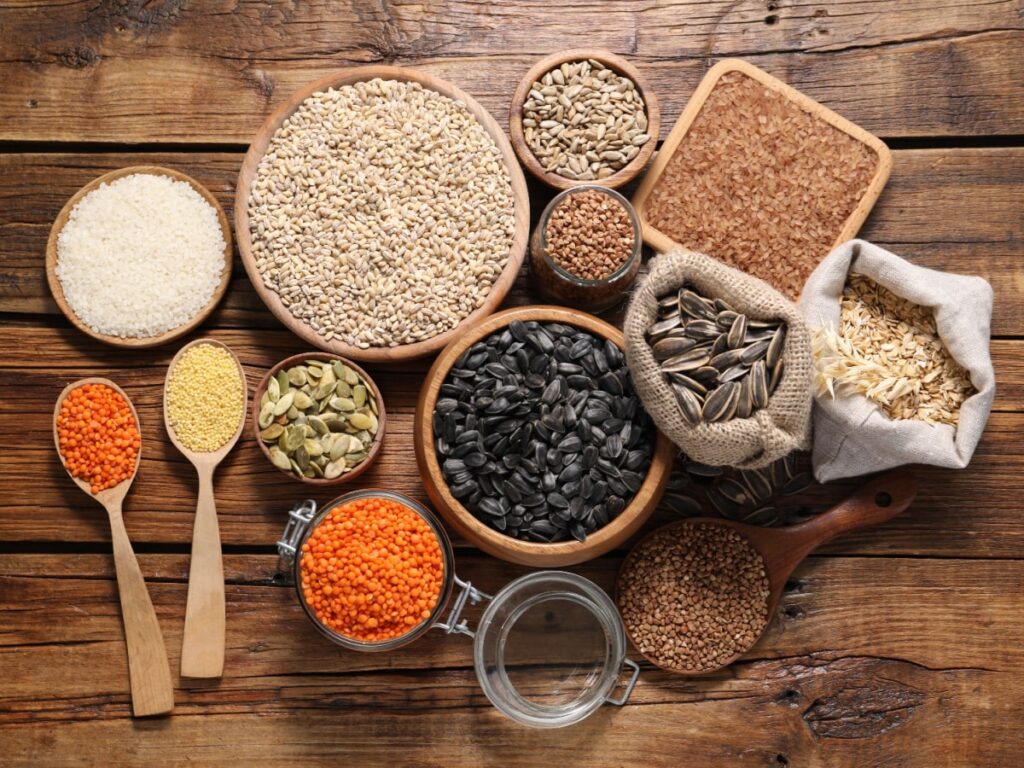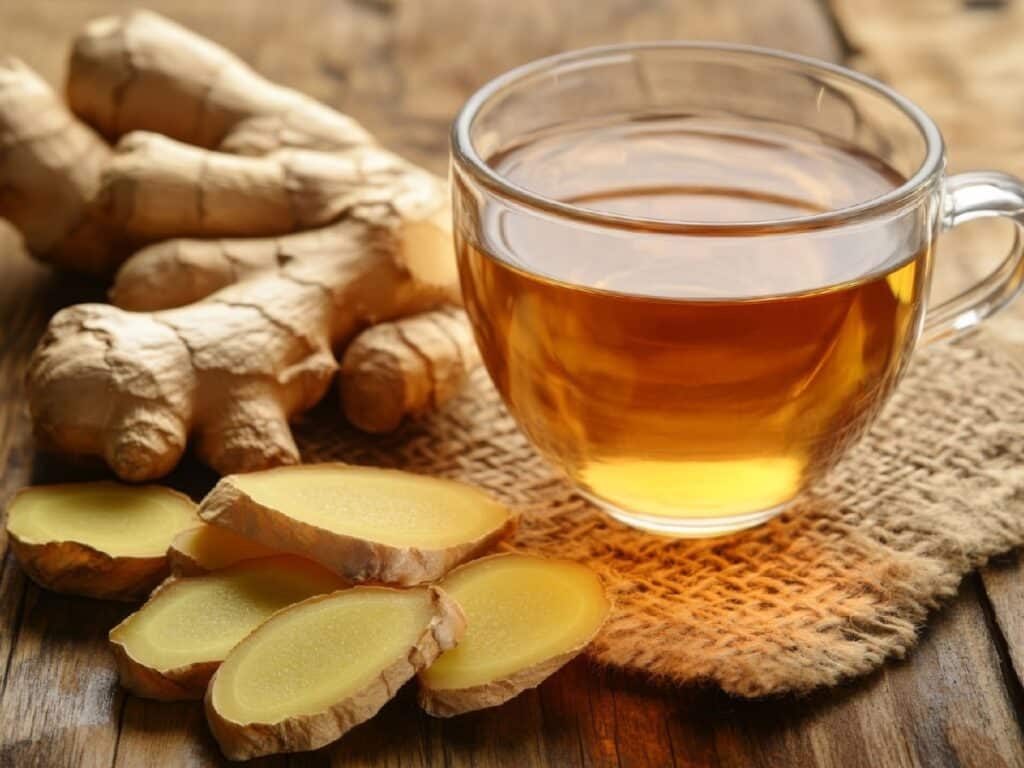Bloating can be uncomfortable, frustrating, and all too common. For many women aged 35 and above, this sensation of fullness or swelling in the abdomen is often an unwelcome occurrence. But why does bloating happen? One significant factor is the food we eat.
Certain foods are known to trigger bloating while others can help reduce it. Beyond diet, the Alevere weight loss programme offers a medically supervised solution that not only supports weight loss but also tackles bloating. This blog dives into the causes of bloating, reveals foods that can both trigger and relieve these symptoms, and explains how Alevere can help.
Bloating occurs when your gastrointestinal tract fills with gas or air. This can be caused by a variety of factors, including overeating, consuming specific foods, or even underlying medical conditions. For many health-conscious women in this age bracket, understanding the foods to avoid and those to favour can make all the difference.

While occasional bloating is normal, frequent or severe bloating may indicate a need for dietary changes or a medical weight-loss programme like the Alevere.
The foods we consume play a critical role in triggering bloating. While some of them are healthy, they can still impair digestion, especially in individuals who are sensitive to them. Below is a list of common culprits you may want to watch out for:
FODMAPs (Fermentable Oligo-, Di-, Mono-saccharides and Polyols) are a group of carbohydrates that are commonly linked to bloating. They ferment in the gut, producing gas, and can exacerbate symptoms in sensitive individuals. Key examples include:

Legumes, such as beans, lentils, chickpeas, and peas, are another nutrient-dense food group that can cause bloating for some individuals. They are an excellent source of protein, fiber, vitamins, and minerals, making them a staple in many healthy diets. However, legumes also contain complex carbohydrates and compounds like oligosaccharides that are not fully digested in the stomach. These compounds are fermented by gut bacteria, leading to gas production and possible bloating. To minimize these effects, soaking legumes before cooking and using methods like sprouting or pressure cooking can aid in breaking down these complex carbohydrates, improving their digestibility without compromising their nutritional value.
Cruciferous vegetables such as broccoli, cauliflower, cabbage, and Brussels sprouts are rich in nutrients and fiber, making them a healthy choice. However, they also contain raffinose, a type of sugar that ferments in the gut, producing gas and contributing to bloating. While these vegetables are an essential part of a balanced diet, consuming them in excessive quantities or without proper cooking can lead to digestive discomfort for some individuals. Cooking them thoroughly can help break down raffinose and make them easier to digest.
Gluten, a protein found in wheat, barley, and rye, is commonly present in a variety of foods. Staples such as bread, pasta, cereal, and baked goods often contain gluten due to their wheat-based ingredients. Many processed and packaged foods, including soups, sauces, and even certain snack foods, may also have gluten as a hidden additive, sometimes listed as a thickening agent or stabilizer. For individuals with celiac disease or gluten sensitivity, it is essential to carefully read food labels and opt for certified gluten-free alternatives to avoid adverse reactions. Whole grains like quinoa, buckwheat, and rice serve as excellent substitutes for gluten-containing grains, ensuring a balanced and nutritious diet.
Sodas, sparkling water, and other fizzy drinks are filled with carbon dioxide gas, which can accumulate in the digestive system and cause bloating. These beverages not only make you feel full but also increase your gas levels.
Packaged snacks and ready-to-eat meals often contain high amounts of sodium. Excessive salt causes water retention, adding to the sensation of bloat. Hidden sugars, particularly artificial sweeteners, also ferment in the gut and contribute to gas.
For individuals with lactose intolerance, consuming milk, cheese, or yoghurt can lead to digestive discomfort, including bloating, gas, and diarrhoea.
Fried and greasy meals can slow digestion. When food moves slowly through your digestive tract, it can lead to increased gas production and bloating.
For those with gluten sensitivities or coeliac disease, wheat-based products can cause bloating and inflammation. This includes foods like bread, pasta, and baked goods.
Onions and garlic are common culprits of bloating due to their high content of fructans, a type of fermentable fiber. For some people, these compounds can be difficult to digest, leading to excessive gas production and discomfort. Cooking onions and garlic may reduce their bloating effects, but individuals with sensitivities may still experience issues.
If bloating is a common concern, adding certain foods to your diet can help alleviate symptoms. These foods are known for their anti-inflammatory or digestion-friendly properties.

Ginger is a natural anti-inflammatory and is widely known to soothe digestive discomfort. Drinking ginger tea or adding fresh ginger to recipes can help reduce bloating.
Probiotics help balance gut bacteria, which can improve digestion and reduce bloating. Include the following in your diet:
Bananas are rich in potassium, a mineral that helps counteract the effects of sodium. This makes them an excellent food for reducing water retention and combating bloating.
Because of its high water content, cucumber is great for hydrating the body and reducing bloating caused by water retention.
Peppermint has muscle-relaxing properties, which can provide relief from bloating and cramping.
This tropical fruit contains an enzyme called papain, which aids digestion and may help reduce bloating after meals.
If bloating stems from a deeper issue related to weight or dietary imbalances, a structured, medical weight-loss programme can offer a solution. This is where the Alevere Transform Weight Loss Programme comes in, specifically designed to address both weight-loss challenges and bloating.
Alevere is an advanced, medically supervised programme that combines personalised dietary changes with cutting-edge technology. It ensures:
Unlike fad diets, Alevere focuses on long-term results with no adverse health side effects.
By cutting out bloating-triggering foods and recommending digestion-friendly alternatives, Alevere supports a healthier gut.
Using advanced LPG Endermologie technology, Alevere promotes the breakdown of fat while firming and toning the skin.
Alevere’s non-invasive methods make it suitable for women prioritising their health and well-being.
Alevere tailors meal plans to your unique needs, cutting out FODMAP-heavy and processed foods while promoting anti-bloating alternatives.
Continuous assessment ensures that your gut health improves alongside weight loss.
For women dealing with persistent bloating and seeking weight loss, Alevere offers holistic solutions to help you look and feel your best.
Bloating doesn’t have to rule your life. By identifying and reducing bloating-triggering foods from your diet, incorporating gut-friendly alternatives, and exploring sustainable weight-loss programmes like Alevere, you can take control of your health and well-being.
Remember, every small change you make to improve your diet and lifestyle will help you feel lighter, more energetic, and more confident in your body. And if you’re ready for a structured, effective solution, the Alevere Transform Weight Loss Programme is here to support you.
Get started today and discover the difference it can make to your gut health and life.

© 2025 Alevere Clinics
Made with ❤ by Synergy Media